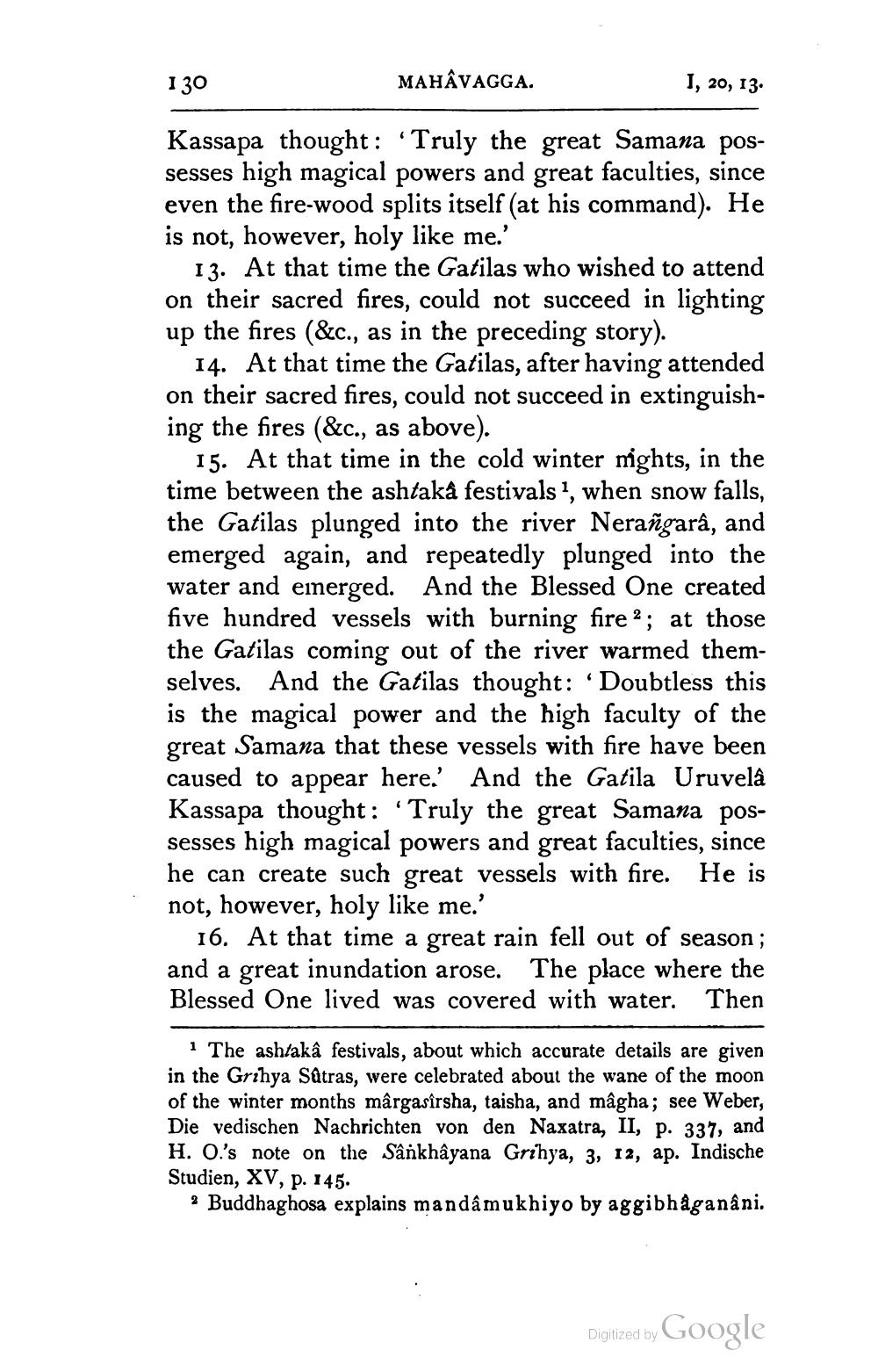________________
130
MAHẬVAGGA.
1, 20, 13.
Kassapa thought: ‘Truly the great Samana possesses high magical powers and great faculties, since even the fire-wood splits itself (at his command). He is not, however, holy like me.'
13. At that time the Gatilas who wished to attend on their sacred fires, could not succeed in lighting up the fires (&c., as in the preceding story).
14. At that time the Gatilas, after having attended on their sacred fires, could not succeed in extinguishing the fires (&c., as above).
15. At that time in the cold winter mights, in the time between the ashtaka festivals 1, when snow falls, the Gatilas plunged into the river Nerañgara, and emerged again, and repeatedly plunged into the water and einerged. And the Blessed One created five hundred vessels with burning fire ?; at those the Gatilas coming out of the river warmed themselves. And the Gatilas thought: ‘Doubtless this is the magical power and the high faculty of the great Samana that these vessels with fire have been caused to appear here.' And the Gatila Uruvela Kassapa thought: ‘Truly the great Samana possesses high magical powers and great faculties, since he can create such great vessels with fire. He is not, however, holy like me.'
16. At that time a great rain fell out of season; and a great inundation arose. The place where the Blessed One lived was covered with water. Then
1 The ashtakâ festivals, about which accurate details are given in the Grihya Sätras, were celebrated about the wane of the moon of the winter months mârgasîrsha, taisha, and mâgha; see Weber, Die vedischen Nachrichten von den Naxatra, II, p. 337, and H. O.'s note on the Sânkhâyana Grihya, 3, 12, ap. Indische Studien, XV, p. 145.
2 Buddhaghosa explains mandâ mukhiyo by aggibhåganâni.
Digitized by Google




